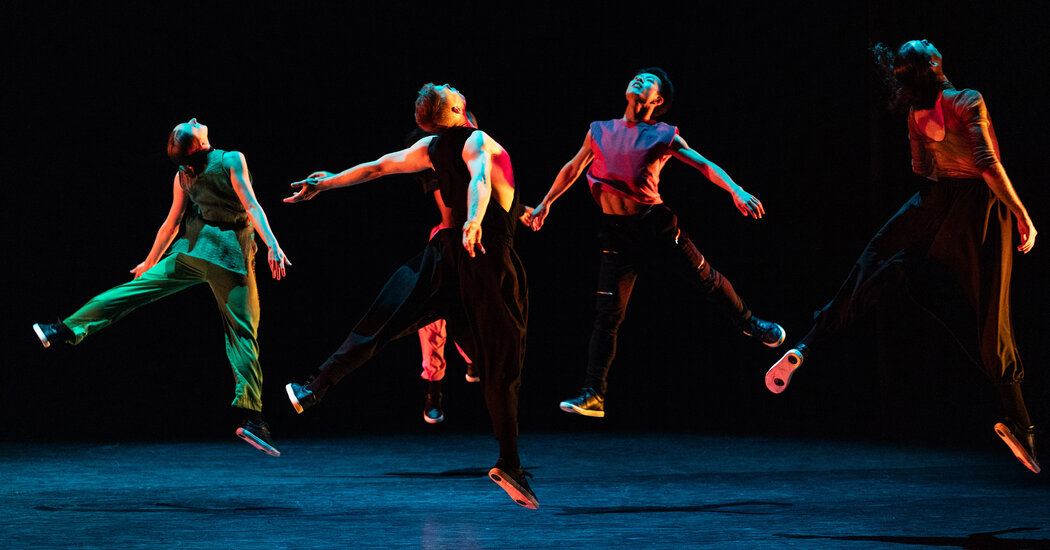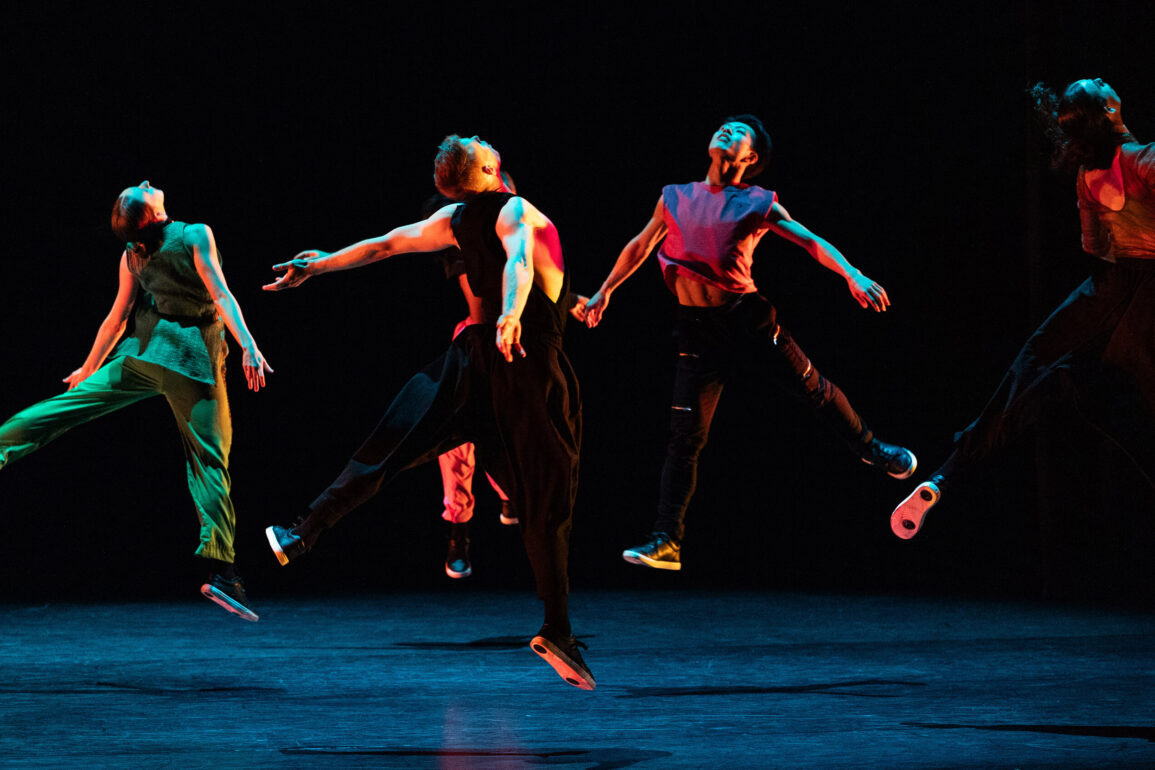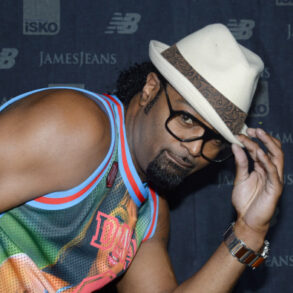
Hubbard Street Dance Chicago presents the first of two programs at the Joyce Theater, including a sparkling New York premiere by the hip-hop choreographer Rennie Harris.
When a repertory company comes to town with two programs, and one has a Rennie Harris dance on it, choose that. This Philadelphia hip-hop choreographer is a treasure and so are his dances.
“Dear Frankie,” the rousing closer to a program by Hubbard Street Dance Chicago, was such a poetic wonder — in sound, in look, in stillness and in action — that it almost made up for what had come before it. Almost. It was a long night.
Hubbard Street, now in its 46th season, returned to the Joyce Theater on Tuesday for a two-week run. (The program next week features works by Lar Lubovitch, Rena Butler and Aszure Barton.) Now under the artistic direction of Linda-Denise Fisher-Harrell — a former company member who went on to be a much admired Alvin Ailey dancer — the group presented the New York premiere of Harris’s “Dear Frankie” along with works by Darrell Grand Moultrie and Thang Dao.
In “Dear Frankie,” Harris pays homage to a pioneer of Chicago’s house culture, the D.J. Frankie Knuckles. Known as the “godfather of house,” he was pivotal in introducing the genre to the world. The dance starts off slowly yet stylishly: James Clotfelter’s lighting immediately transports us to a club where, every so often, bright white beams flood light onto the stage. It’s so stark, so subtle in how it encloses the space, turning it into a haven.
At first dancers cluster at the center of the stage, but gradually they wander off, gliding together in small groups as they tickle the floor with footwork before slipping into other constellations of bodies. In these brief fragments, like tiny chapters building up to a book, the dancers find their bearings as the beat begins to soak into their skin. At one point, Abdiel Figueroa Reyes lets loose, his limbs rippling like spun silk.
Beyond steps, glorious as they are, Harris is passing on Chicago house culture. In a series of voice-overs, he and others describe the importance of the dance club the Warehouse, where people discovered freedom through movement and found their chosen families.
This post was originally published on this site be sure to check out more of their content.





